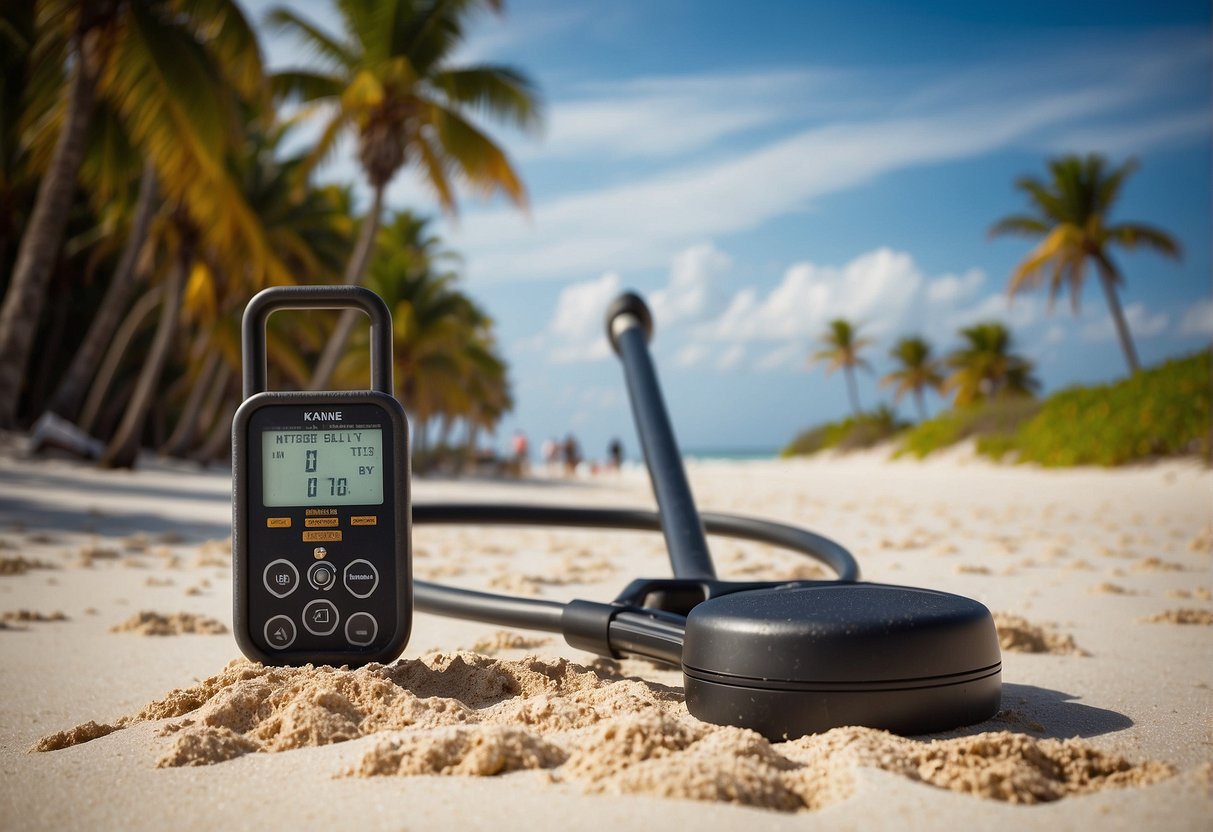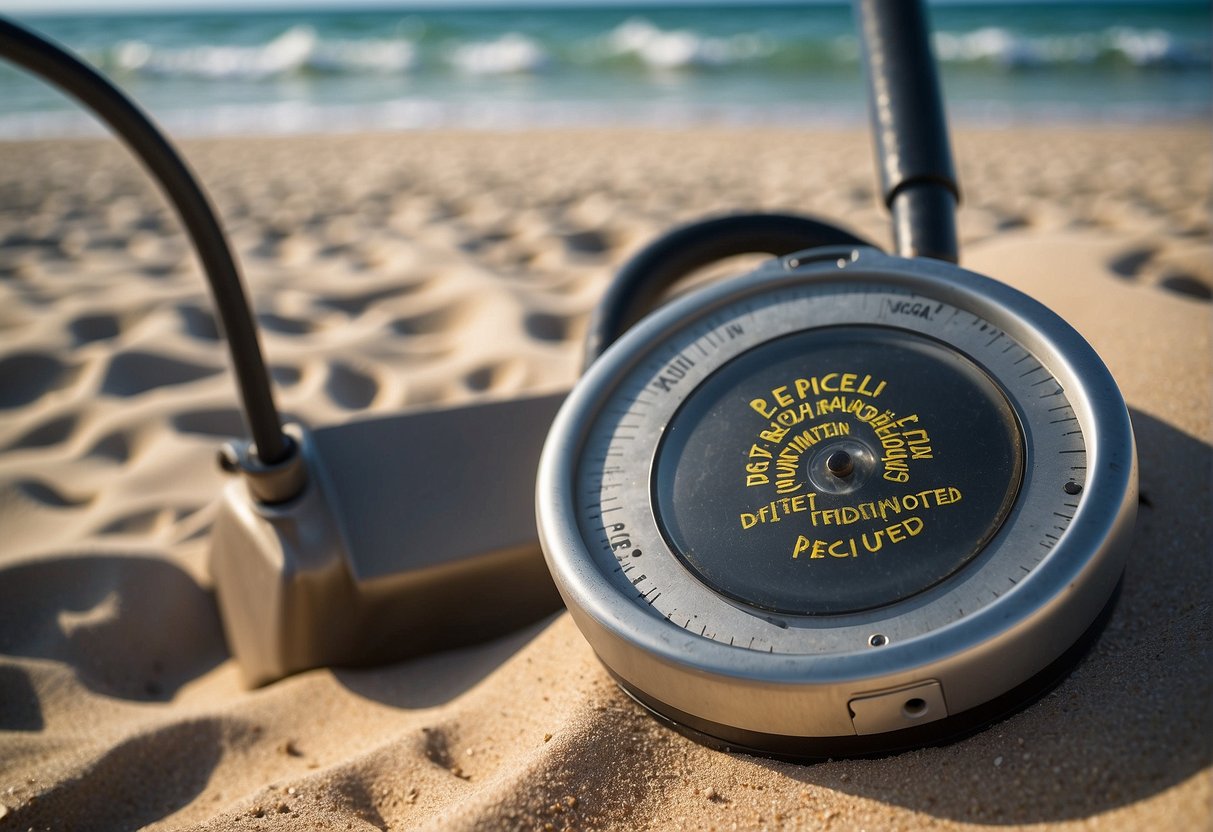From lost treasures to historical artifacts, the coastline holds a wealth of hidden secrets just waiting to be unearthed.
For many enthusiasts, metal detecting offers a tantalizing glimpse into the past, allowing them to explore the rich tapestry of history buried beneath the surface.
Join us as we embark on a journey through time and terrain, seeking to unravel the mysteries of metal detecting on Florida’s captivating coastlines.
Understanding Metal Detecting Permits in Florida
If you’re planning to go metal detecting on Florida beaches, it’s important to understand the state laws and regulations regarding metal detecting.
In this section, we’ll discuss the rules and regulations for metal detecting in Florida, including permit requirements, state laws, and metal detecting in state parks vs. national parks.
State Laws and Regulations on Metal Detecting
Metal detecting is governed by the state laws of antiquities and the federal law ARPA (Archaeological Resources Protection Act of 1979).
In Florida, metal detecting is generally allowed, but it is important to understand that it is in no way outlawed in the state.
However, it is important to note that metal detecting in any of Florida’s historically significant regions is not allowed.
Permit Requirements for Florida Beaches
In Florida, you do not need a permit to metal detect on public beaches, except those connected to private property.
However, it is important to note that some items found in the Florida waters or sands for over 50 years are considered property of the state.
A recently introduced bill called HB 631 prohibits metal detecting on beaches connected to private property.
Metal Detecting in State Parks vs. National Parks
Metal detecting is allowed in Florida state parks, but only in certain designated areas.
It is important to know where you are allowed to hunt, as well as where you are not allowed to hunt.
State parks are glorious, encompassing vast beaches, forests, and natural areas.
On the other hand, metal detecting is not allowed in national parks in Florida.
Best Practices and Locations for Metal Detecting in Florida

Metal detecting is a fun and exciting hobby that can lead you to some amazing finds.
However, before you grab your metal detector and head to the beach, it’s important to know the best practices and locations for metal detecting in Florida.
Etiquette and Code of Ethics for Detectorists
As metal detectorists, we must follow a code of ethics and show respect for the environment and the rights of others.
Some basic etiquette guidelines to follow include:
- Always obtain permission before metal detecting on private property.
- Fill in any holes you dig and leave the area in the same condition as you found it.
- Respect the rights of others and avoid metal detecting in crowded areas or during peak hours.
- Follow all local laws and regulations regarding metal detecting.
Top Beaches and Parks for Metal Detecting
Florida is home to some of the best beaches and parks for metal detecting.
Some of the top locations include:
- Clearwater Beach: This popular beach is known for its clear waters and soft sand. It’s also a great place to find lost jewelry and coins.
- St. Petersburg Beach: Another popular beach with plenty of areas to search for treasures.
- Naples Beach: This beach is known for its beautiful sunsets and is a great place to search for relics.
- Fort Myers Beach: This beach is a popular spot for metal detecting and is known for its abundance of gold coins and artifacts.
- Melbourne Beach: This beach is located on the Treasure Coast and is known for its rich history and abundance of treasures.
- Vero Beach: This beach is also located on the Treasure Coast and is a great place to search for lost jewelries and coins.
- Wabasso Beach: This beach is located near Sebastian Inlet and is known for its abundance of treasures.
Dealing with Finds: Artifacts and Treasures
When metal detecting in Florida, it’s important to know how to properly handle and deal with your finds.
If you find any artifacts or treasures, it’s important to follow these guidelines:
- Do not disturb the site where the artifact or treasure was found.
- Report your findings to the proper authorities and follow any local laws or regulations regarding the discovery of artifacts or treasures.
- Do not sell or trade any artifacts or treasures without proper documentation and permission.
Legal and Environmental Considerations

Metal detecting on Florida beaches can be a fun and exciting hobby, but it is important to be aware of the legal and environmental considerations before you start.
In this section, we will discuss the laws and regulations surrounding metal detecting on Florida beaches, as well as the importance of protecting archaeological and cultural resources and being environmentally responsible.
Protecting Archaeological and Cultural Resources
When metal detecting on Florida beaches, it is important to be aware of the potential for discovering archaeological and cultural resources.
These resources are protected by state and federal laws, and it is illegal to disturb or remove them without the proper permits.
This includes artifacts, treasures, and other items that may have historical or cultural significance.
To protect these resources, it is important to obtain the necessary permits before conducting any excavation or removal of items.
This includes permits from local authorities, county parks, state parks, national parks, and monuments.
Failure to obtain the proper permits can result in fines and other penalties.
Metal Detecting and Environmental Stewardship
In addition to protecting archaeological and cultural resources, it is also important to be environmentally responsible when metal detecting on Florida beaches.
This includes being mindful of the impact that metal detecting can have on the environment, such as disturbing dunes and other natural features.
To minimize the impact of metal detecting on the environment, it is important to follow best practices for metal detecting, such as filling in any holes that are dug and avoiding sensitive areas.
It is also important to be aware of any regulations or restrictions that may be in place for metal detecting on specific beaches or in specific areas.
Frequently Asked Questions About Metal Detecting in Florida
Is a permit required for metal detecting on public beaches in Florida?
Yes, a permit is required for metal detecting on public beaches in Florida.
According to Fun Outdoor Ventures, metal detecting is not permitted everywhere, and it’s essential to know the laws before uncovering treasures on Florida beaches.
The Florida Department of Environmental Protection (FDEP) requires a permit for metal detecting on public beaches.
The permit is free and can be obtained from the FDEP website or by contacting the local FDEP office.
What are the regulations for metal detecting in Florida state parks?
Florida State Parks are glorious, encompassing vast beaches, forests, and natural areas — and using metal detectors in them is allowed, at least in certain designated areas.
According to Visit Florida, metal detecting is governed by the State Laws of Antiquities and also by the federal law ARPA (Archaeological Resources Protection Act of 1979).
Generally, this hobby is allowed in Florida! It is important to understand that it is in no way outlawed in the state.
Can you legally metal detect in shallow waters along the Florida Gulf?
Yes, you can legally metal detect in shallow waters along the Florida Gulf.
According to Detecting School, metal detecting is allowed in Florida’s shallow waters along the Gulf of Mexico, but it’s important to know the regulations.
You must have a permit from the FDEP to metal detect in the shallow waters of the Gulf of Mexico.
Where are the best locations in Florida for beach metal detecting?
Florida has many great locations for beach metal detecting.
According to Metal Detecting Tips, the best beaches in Florida to metal detect are Venice Beach, Daytona Beach, Fort Lauderdale Beach, St. Augustine Beach, Cocoa Beach, and Vero Beach.
These beaches are known for their historical significance and are great places to find valuable treasures.
Are there any restrictions on metal detecting at St. Augustine or Cocoa Beach?
Yes, there are restrictions on metal detecting at St. Augustine or Cocoa Beach.
According to Visit Florida, metal detecting is not allowed in the dunes or vegetation areas of the beach.
Metal detecting is not allowed in the protected areas of the beach, such as turtle nesting areas.
Is it possible to discover valuable treasures through metal detecting in Florida?
Yes, it is possible to discover valuable treasures through metal detecting in Florida.
According to Metal Detecting Tips, people have found valuable treasures such as gold coins, silver coins, and jewelry on the beaches of Florida.
However, it’s important to know the laws and regulations for metal detecting in Florida to avoid any legal issues.
By adhering to these guidelines and embracing a mindset of responsible stewardship, metal-detecting enthusiasts can continue to enjoy their hobby while preserving the integrity of Florida’s coastal environments
We can also ensure that future generations have the opportunity to uncover the hidden treasures of Florida’s beaches for years to come.